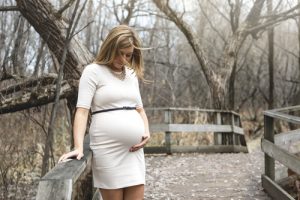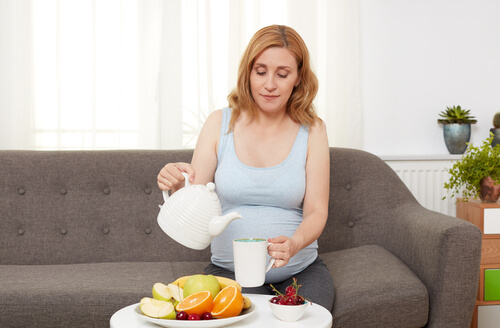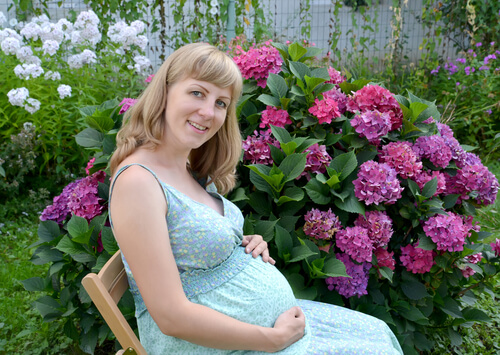How to Have a Safe Pregnancy after 30


Written and verified by the doctor Nelton Ramos
When we talk about a safe pregnancy after 30, it’s necessary to address the issue of female fertility. Much has been said about how difficult it is to conceive a child at this age.
But did you know that many of those statistics are cited from studies that are markedly outdated?
Although the passage of time changes the way both female and male bodies function, the issue of fertility doesn’t vary as drastically as it is believed.
Decades ago it was said that women in their 30s took a long time to conceive. However, current figures indicate that most women can become pregnant in less than a year.
Safe pregnancy after 30: prenatal care
- Choose a doctor with whom you feel comfortable and who has had previous experience with women in your situation. Communication between doctor and patient is fundamental for a successful process.
- If you or your partner habitually uses tobacco, it’s time to stop. Nicotine has a negative impact on the body, and one of the aspects affected is fertility. Smoking increases the risk of spontaneous miscarriages and premature births. It’s also associated with congenital malformations and reduced weight in the baby.
- Being overweight is another aspect that must be remedied so that pregnancy is safe. Obesity and eating disorders hinder the process of conception. During pregnancy, the extra weight causes great inconveniences to your health and that of the baby.

- Ask the doctor who treats you to recommend a complete physical examination. It’s important that you make sure to prevent and remedy conditions such as high blood pressure and diabetes. If you need treatment, your doctor will recommend medicines that don’t interfere with pregnancy.
- Share your family medical history with your health professionals. With this preventative measure, you can detect undesirable genetic conditions and promptly counteract them. If there has been a health condition in your family that can be transmitted, now is the right time to identify it.
A healthy diet is an important part of a healthy lifestyle at any time, but it is especially vital if you are pregnant or planning a pregnancy.
-National Health Service-
During the pregnancy
- Keep a detailed record of all your medical appointments for prenatal care and control.
- Once you decide to conceive, abandon all harmful habits that may affect your health. It’s also essential that you start eating well. A good diet guarantees that your body will be in the best condition to accommodate the baby during pregnancy.
- A general recommendation among doctors is to consume an adequate prenatal vitamin. Another good practice is to take a folic acid supplement.
- Avoid self-medication. Before consuming any analgesic or over-the-counter medication, consult your doctor.
- A good exercise routine will give you the muscular strength and resistance to adapt to the changes your body will go through. Physical activity also helps to reduce pain, improve circulation and regain your physique after pregnancy. It’s a great tool to help you achieve a safe pregnancy in your 30s.

- Make sure you get enough rest, especially during the first trimester of pregnancy. Take a nap, spend a little time on your hobbies, pause during your daily routine, etc. Breathing techniques, yoga, stretching and massages are good to condition the body.
- Reduce caffeine consumption. Caffeine doesn’t have nutritional value and causes the body to not absorb iron properly. In addition, its stimulating effect makes it difficult to fall asleep at night.
If you’ve decided to become a mother after turning 30, you can rest easy. Although there are factors that you must take care of in terms of your body, it’s possible to have a safe pregnancy after 30.
In fact, there are many benefits related to late motherhood for both mothers and babies.
Age doesn’t really matter: what truly makes the difference is that you have a process in place for responsible conception and gestation.
All cited sources were thoroughly reviewed by our team to ensure their quality, reliability, currency, and validity. The bibliography of this article was considered reliable and of academic or scientific accuracy.
- Bellieni, Carlo. “The Best Age for Pregnancy and Undue Pressures” Journal of family & reproductive health vol. 10,3 (2016): 104-107.
- Lampinen, Reeta et al. “A review of pregnancy in women over 35 years of age”open nursing journal vol. 3 33-8. 6 Aug. 2009, doi:10.2174/1874434600903010033
This text is provided for informational purposes only and does not replace consultation with a professional. If in doubt, consult your specialist.
